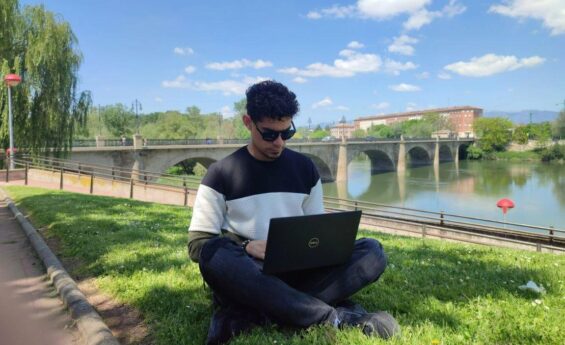Spain aims to attract talent. A country considered idyllic for many foreign workers – and tourists – lacked a law that legalizes their residence beyond the tourist visa, which only allows a stay in our country for three months.
Addressing this issue was the focus of the startup law, approved in Congress at the end of 2022 and effective as of January 1, 2023. This law comprises a range of measures designed to promote innovative entrepreneurship in Spain, favoring investment and the attraction of international talent, among other goals.
The visa for digital nomads is one of the provisions included in this new law. This was the final step in the Residence Program for Investors and Entrepreneurs (PRIE) undertaken and maintained by all central Governments for years, aimed at attracting foreign talent, investment, and entrepreneurship. Until now, this program had regulated residency permits for investors, entrepreneurs, and high-ranking foreign officials. Now, through the startup law, the residency permit for digital nomads is regulated, placing them on par with these profiles in terms of required bureaucracy and the possibility of family reunification.
And what is a digital nomad?
The law promoting the ecosystem of emerging companies – the name of the startup law – defines digital nomads as “individuals whose jobs allow them to work remotely and frequently change residence, combining high-skilled work with immersive tourism in the country of residence.”
A specific visa has been created for them, reproducing the residency rights of the Golden Visa, granting both employed and self-employed workers a one-year visa to reside in Spain. After this period, they can apply for a residency permit for another three years, which then becomes renewable every two years. Starting from the fifth year of stay in Spain, permanent residence can be requested “as long as the conditions that generated the right are maintained.”
Eligibility
Non-resident foreigners who wish to apply for this visa must demonstrate that they are university graduates, vocational training graduates, have completed their studies in “recognized prestigious” business schools, or have a minimum professional experience of three years.
The visa can be granted to both employed and self-employed workers. In the first case, the digital nomad must demonstrate continuous activity for at least three months with the foreign company. Self-employed workers, on the other hand, must prove commercial activity with other foreign companies for at least one year. In these cases, the self-employed individual can allocate up to 20% of their activity to work for Spanish companies.
Additionally, telecommuters engaged in entrepreneurial activities and highly skilled professionals providing services to emerging companies or engaged in education, research, development, and innovation can benefit from this special regime.
Tax advantages
The main advantage for digital nomads is the opportunity to opt for the special regime for impatriates, better known as the “Beckham Law.” This is a special tax regime that allows them to pay taxes through the Non-Resident Income Tax (IRNR), which has a lower rate than the Personal Income Tax (IRPF): 24% taxation on the first €600,000 generated. Income exceeding this amount in a year will be taxed at the regular IRPF rate: 47%. This regime has a maximum duration of six years.
The Startup Law relaxes and expands the conditions for opting for this regime. While previously it was required not to have been a tax resident in Spain in the last ten years, now it is sufficient to meet this condition for five years.

